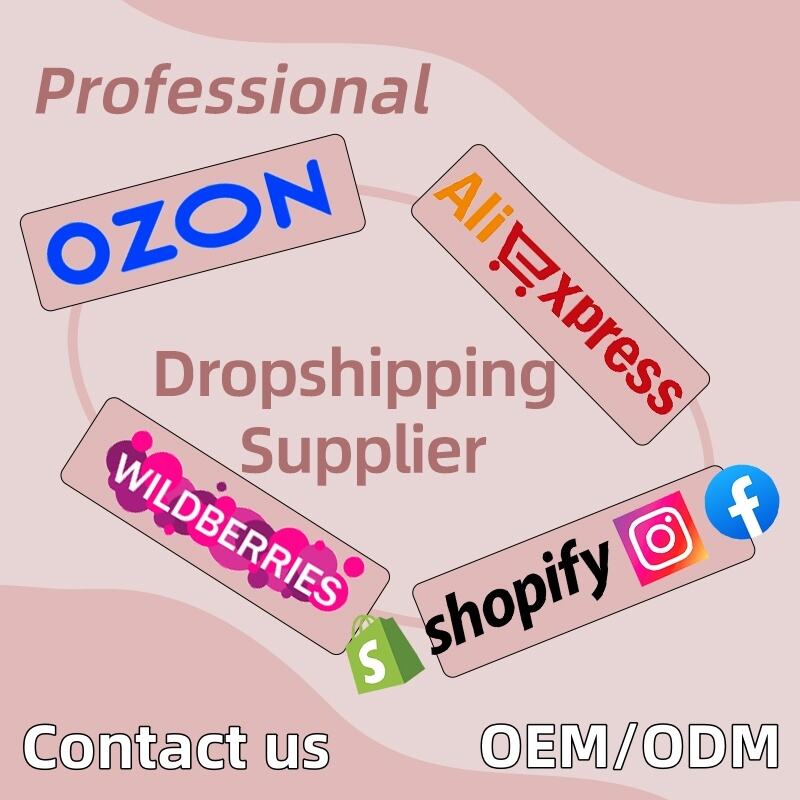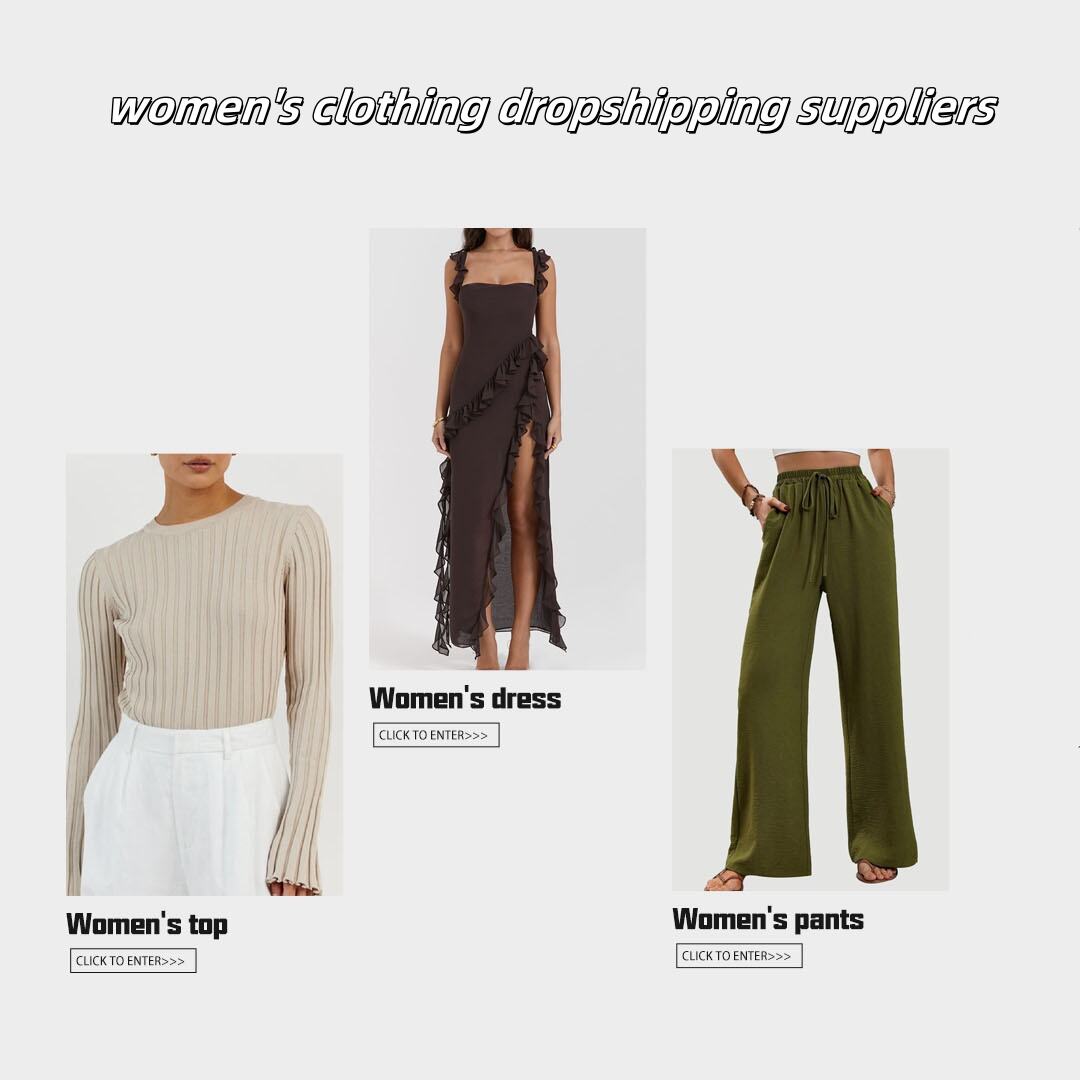Հաջող ապրանքային մատակարարման բիզնեսի կառուցում՝ որակյալ մատակարարների հետ համագործակցելով
Ցանկացած հաջող աճող dropshipping գործարք հիմքը վստահելի մատակարարների հետ ամուր հարաբերություններ հաստատելն է dropshipping մատակարարներ . Ճիշտ գործընկերների գտնելը կարող է նշանակել հաջողված ձեռնարկության և դժվարություններ ունեցող նախաձեռնության տարբերությունը։ Այսօրվա մրցակցային էլեկտրոնային առևտրի պայմաններում երկարաժամկետ հաջողության համար կարևոր է հավաստի մատակարարների հետ կապ հաստատել, ովքեր անընդհատ որակյալ ապրանքներ են մատակարարում, պահպանում են համարժեք գներ և առաջարկում են վստահելի առաքման ծառայություններ։
Տարածողական մատակարարների հետ նույնականացման և գործընկերության գործընթացը պահանջում է զգոն հետազոտություն, խիստ վերահսկողություն և ռազմավարական պլանավորում: Այս համապարփակ ձեռնարկը ձեզ կուղեկցի ապացուցված մեթոդների միջոցով՝ հայտնաբերելու, գնահատելու և համագործակցելու արդյունավետ մատակարարների հետ, որոնք կօգնեն ձեզ կառուցել կայուն dropshipping գործարք որը շուկայում առանձնանում է:
Հնարավոր մատակարարների գնահատման հիմնարար չափանիշներ
Արտադրանքի որակի և համապատասխանության չափանիշներ
Դրոփշիփինգի մատակարարներին գնահատելիս ապրանքի որակը պետք է լինի ձեր հիմնական մտահոգությունը: Խնդրեք ապրանքի նմուշներ՝ նյութերը, արհեստավորությունը և ընդհանուր որակը գնահատելու համար: Փնտրեք մատակարարներ, որոնք պահպանում են որակի կայուն չափանիշներ իրենց ամբողջ ապրանքատեսականու համար և ունեն որակի վերահսկման գործընթացներ: Հաշվի առեք, թե ինչպես են ապրանքները համեմատվում մրցակիցների առաջարկների հետ և արդյոք դրանք համապատասխանում են ձեր թիրախային շուկայի սպասումներին:
Որակի վերաբերյալ վավերագրերի, արտադրության ստանդարտների և փորձարկման ընթացակարգերի փաստաթղթերը կարող են լրացուցիչ համոզմունք տալ մատակարարի հանձնառության մասին բարձր որակին: Հիշեք, որ ձեր բրենդի համաշխարհային համար կախված է այն ապրանքների որակից, որոնք ձեր մատակարարները մատակարարում են ձեր հաճախորդներին:
Փոխադրման հնարավորություններ և կատարման արդյունավետություն
Արդյունավետ առաքումը և պատվերի կատարումը թեքացման բիզնես մոդելի կարևոր կետեր են: Գնահատեք թեքացման մատակարարներին՝ հիմնվելով նրանց առաքման ժամանակի, առաքման հուսալիության և աշխարհագրական ծածկույթի վրա: Ուշադրություն դարձրեք այն գործընկերներին, ովքեր առաջարկում են հետևման տեղեկություններ, պահպանում են համարժեք առաքման տոկոսներ և փորձ ունեն միջազգային պատվերներ կատարելու մեջ, եթե պլանավորում եք սպասարկել գլոբալ շուկան:
Հաշվի առեք այն մատակարարներին, ովքեր ունեն բազմաթիվ պահեստներ կամ բաշխման կենտրոններ, քանի որ սա կարող է հանգեցնել ավելի արագ առաքման ժամանակի և նվազագույն առաքման ծախսերի: Ուշադրություն դարձրեք նրանց փաթեթավորման մեթոդներին, վերադարձման քաղաքականությանը և սեզոնային ծավալների տատանումներ կառավարելու կարողությանը:
Տեխնոլոգիայի և ավտոմատացման գործիքների օգտագործում
Էլեկտրոնային առևտրի հարթակների ինտեգրման հնարավորություններ
Ժամանակակից թողարկման մատակարարները պետք է առաջարկեն հարթ ինտեգրում հայտնի էլեկտրոնային առևտրի հարթակների և շուկայական համակարգերի հետ: Ուշադրություն դարձրեք այն մատակարարներին, ովքեր API հասանելիություն են ընձեռում, ավտոմատ կերպով թարմացնում են պահեստի տվյալները և ապահովում են պատվերների իրական ժամանակում մշակման հնարավորություն: Այս տեխնոլոգիական հնարավորությունները կարող են զգալիորեն պարզեցնել ձեր գործողությունները և նվազեցնել ձեռքով մշակման անհրաժեշտությունը:
Հաշվի առեք, թե արդյոք մատակարարի համակարգերը կարող են ավտոմատ կերպով սինքրոնացնել ապրանքի տվյալները, գները և պաշարների մակարդակը ձեր առցանց խանութի հետ: Պատվերները ավտոմատ մշակելու և առաքման կարգավիճակի մասին անմիջապես թարմացված տեղեկություն ստանալու հնարավորությունը կարող է բարելավել ձեր արդյունավետությունը և հաճախորդների բավարարվածությունը:
Պաշարների կառավարում և պաշարների մակարդակի հսկում
Ճշգրիտ ապրանքային առկայությունը պահպանելու համար անհրաժեշտ են առաջադեմ պաշարների կառավարման համակարգեր: Ընտրեք այնպիսի թողարկման մատակարարներ, ովքեր իրական ժամանակում թարմացնում են պաշարների տվյալները և ավտոմատ ծանուցումներ են ուղարկում պաշարների ցածր մակարդակի մասին: Սա օգնում է կանխել ավելցուկային վաճառքը և ապահովում է, որ դուք կարողանաք արդյունավետ կերպով կառավարել հաճախորդների սպասելիքները:
Ուշադրություն դարձրեք մատակարարներին, ովքեր առաջարկում են պահեստների կանխատեսման գործիքներ և նվազագույն պաշարների զգուշացման հնարավորություն: Այս հատկանիշները կօգնեն ձեզ ծրագրավորել մարքեթինգային արշավներ և ապահովել տարեցային ընթացքում ապրանքների օպտիմալ առկայություն:

Կապի և աջակցության ենթակառուցվածք
Պատասխանատու հաճախորդների սպասարկման ստանդարտներ
Dropshipping մատակարարների հետ արդյունավետ կապը կարևոր է խնդիրները արագ լուծելու և գործընթացները հարթ ընթացքով պահելու համար: Գնահատեք հնարավոր գործընկերներին՝ հիմնվելով նրանց պատասխանման ժամանակի, աշխատանքային ժամերի ընթացքում հասանելիության և կապի բազմաթիվ ալյուրների վրա: Ուշադրություն դարձրեք այն մատակարարներին, ովքեր ներկայացնում են նվիրված հաշվապահ կառավարողների կամ աջակցության թիմերի, ովքեր ծանոթ են ձեր բիզնեսի պահանջներին:
Հաշվի առեք մատակարարի կարողությունը կարգավորել արտակարգ հարցումներ, մշակել հատուկ հարցումներ և արագ լուծել հաճախորդների բողոքները: Բացատրական կապի ալյուրներ և հաստատված էսկալացման ընթադարձություններ անհրաժեշտ են լավ հարաբերություններ պահպանելու համար մատակարարների հետ:
Փաստաթղթեր և վերապատրաստման ռեսուրսներ
Պրոֆեսիոնալ առցանց մատակարարները պետք է ներկայացնեն հստակ փաստաթղթեր՝ ներառյալ ապրանքակատալոգներ, գների ցուցակներ և շահագործման հրահանգներ: Ուսումնական նյութերին, տեսադասերին և գիտելիքների բազային հասանելիությունը կօգնի ձեզ ավելի լավ հասկանալ նրանց համակարգերն ու ընթացակարգերը: Այս փաստաթղթերը պետք է կանոնավոր թարմացվեն և հեշտությամբ հասանելի լինեն:
Փնտրեք մատակարարներ, որոնք առաջարկում են ներգրավման աջակցություն և նոր գործառույթների կամ ապրանքների շարունակական ուսուցում: Քաղաքականության, ընթացակարգերի և լավագույն փորձի հստակ փաստաթղթավորումը կարող է օգնել կանխել թյուրըմբռնումները և ապահովել սահուն համագործակցություն:
Ֆինանսական համարժեքություններ և պայմաններ
Գնային կառուցվածքներ և մեծ ծավալների զեղչեր
Dropshipping մատակարարների հետ աշխատանքի ֆինանսական ասպեկտները հասկանալը շահույթաբեր գործունեություն պահպանելու համար կարևոր է: Համեմատեք գնային կառուցվածքները՝ ներառյալ ապրանքների արժեքները, доставки վճարները և ցանկացած լրացուցիչ վճարներ: Փնտրեք այնպիսի մատակարարներ, ովքեր առաջարկում են մրցակցային գներ և թափանցիկ գնային քաղաքականություն:
Հաշվի առեք մատակարարներին, ովքեր առաջարկում են ծավալային զեղչեր, հատուկ գնային խմբեր կամ հավատարիմության ծրագրեր, որոնք կարող են բարելավել ձեր շահույթի ցուցանիշները՝ ձեր բիզնեսի աճին զուգահեռ: Վերանայեք վճարման պայմանները, մշակման վճարները և արժույթի փոխանակման դրույքները միջազգային մատակարարների համար:
Պայմանագրի պայմաններ և իրավական պաշտպանություն
Ուշադիր վերանայեք մատակարարների հետ կնքված համաձայնագրերն ու պայմանագրերը՝ ձեր իրավունքներն ու պարտավորությունները հասկանալու համար: Ուշադրություն դարձրեք ապրանքների երաշխիքի, վերադարձի և վեճերի լուծման ընթացակարգերի վերաբերյալ պարզ պայմաններին: Համոզվեք, որ մատակարարը ձեր բիզնեսի շահերի համար ապահովում է բավարար իրավական պաշտպանություն և պահպանում է համապատասխան страխության ծածկույթ:
Հաշվի առեք պայմանագրի գործողության ժամկետը, բացառիկության պահանջները և լուծման դրույթները: Այն մատակարարների հետ համագործակցությունը, ովքեր առաջարկում են ճկուն պայմաններ՝ պահպանելով ճիշտ իրավական պաշտպանությունը, կարող է օգնել երկարաժամկետ գործընկերություններ կառուցել:
Հաճախ տրվող հարցեր
Ինչպե՞ս կարող եմ ստուգել dropshipping մատակարարների օրինականությունը:
Սկսեք ստուգելով ձեռնարկության գրանցումները, առևտրային հղումները և արդյունաբերական վավերագրերը: Պահանջեք նմուշներ, ստուգեք ֆիզիկական գործարկման հասցեները և հնարավորության դեպքում կապ հաստատեք ընթացիկ հաճախորդների հետ: Ուշադրություն դարձրեք մատակարարներին, ովքեր ունեն հաստատված շուկայական ներկայություն և դրական ակնարկներ այլ թույլատվությամբ առևտրային ընկերություններից: Հաշվի առեք համապատասխան առևտրային միություններում անդամակցությունը և ստուգեք հայտարարված գործընկերությունները կամ վավերագրերը:
Ի՞նչ են կարմիր դրոշակները, երբ գնահատում եք ներգրավվող մատակարարներին:
Ուշադիր եղեք մատակարարների նկատմամբ, ովքեր պահանջում են մեծ նախնական վճարներ, ովքեր հրաժարվում են նմուշներ տրամադրել կամ ովքեր ունեն վատ կապի պրակտիկա: Զգուշացեք մատակարարներից, ովքեր չունեն ստուգված գործարկման պատմություն, չունեն ճիշտ փաստաթղթեր կամ ովքեր չեն կարողանում տրամադրել հղումներ: Անհամապատասխան գները, անսովոր երկար առաքման ժամանակները և պայմանների վերաբերյալ քննարկման հրաժարումը նույնպես զգուշացնող նշաններ են:
Քանի՞ թույլատվությամբ մատակարարներ պետք է օգտագործեմ:
Չնայած դա կախված է ձեր բիզնես մոդելից, ձեր հիմնական արտադրանքի կատեգորիաների համար 2-3 վստահելի մատակարարներից սկսելը խորհուրդ է տրվում: Սա ձեզ հնարավորություն է տալիս ունենալ պահեստային տարբերակներ, եթե մեկ մատակարարը խնդիրներ ունենա, միևնույն ժամանակ պահպանելով հարաբերությունների կառավարման հնարավորությունը: Երբ ձեր բիզնեսը մեծանա, կարող եք ընդլայնել ձեր մատակարարների ցանցը՝ հիմնվելով արտադրանքի պահանջարկի և շուկայական հնարավորությունների վրա:


